#Amari Alexis Price
Explore tagged Tumblr posts
Photo
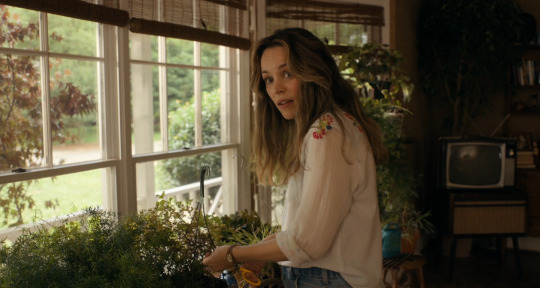

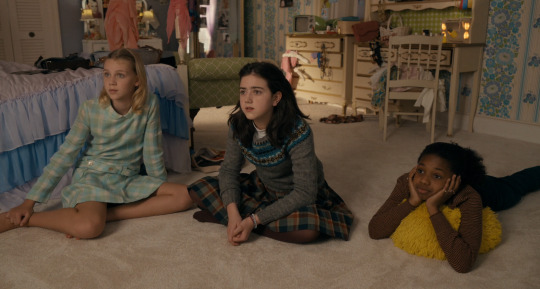
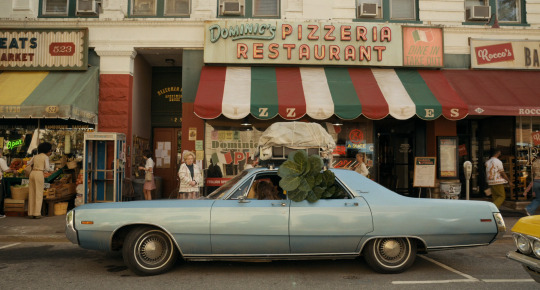
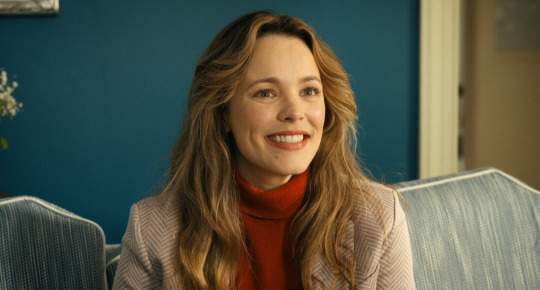
are you there god? it’s me, margaret. (2023)
#are you there god? it's me margaret#film#movie#cinema#art#edit#screencaps#photography#cinematography#2020s#female director#directed by women#kelly fremon craig#rachel mcadams#abby ryder fortson#amari alexis price#elle graham
441 notes
·
View notes
Text
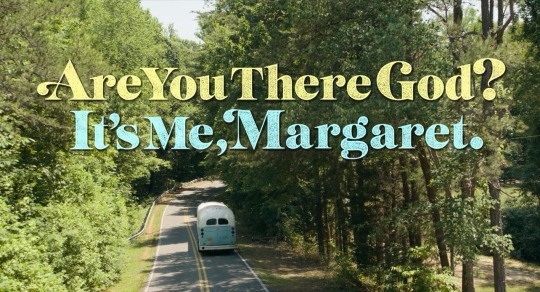


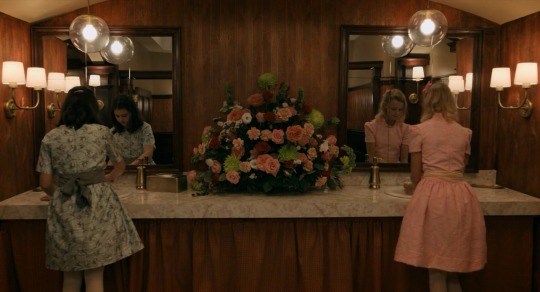


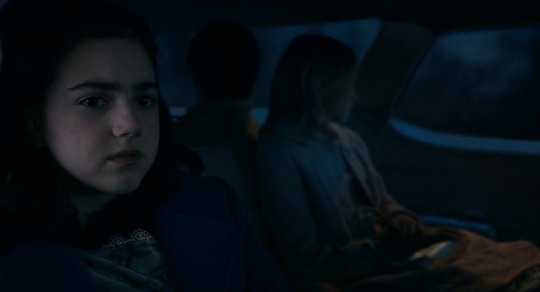
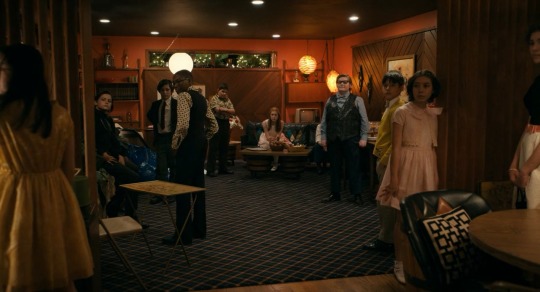

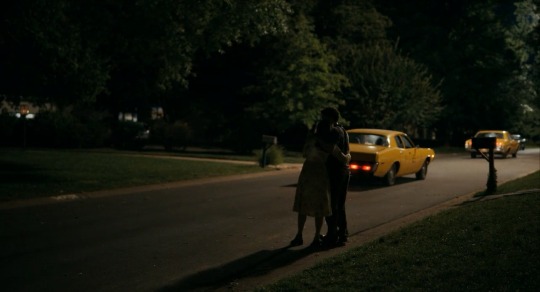
Are You There God? It's Me, Margaret (2023)
Director - Kelly Fremon Craig, Cinematography - Tim Ives
"I've been looking for you, God. I looked for you in Temple. I looked for you in Church. I didn't feel you at all. Why ? Why, God ? Why do I only feel you when I'm alone?"

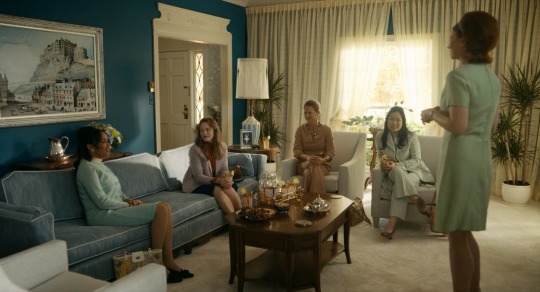
#scenesandscreens#are you there god? it's me margaret#kelly fremon craig#Tim Ives#landon s. baxter#echo kellum#Zackary Brooks#isol young#mia dillon#gary houston#benny safdie#elle graham#amari alexis price#katherine kupferer#kate maccluggage#aidan wojtak hissong#rachel mcadams#kathy bates#abby ryder fortson
121 notes
·
View notes
Text


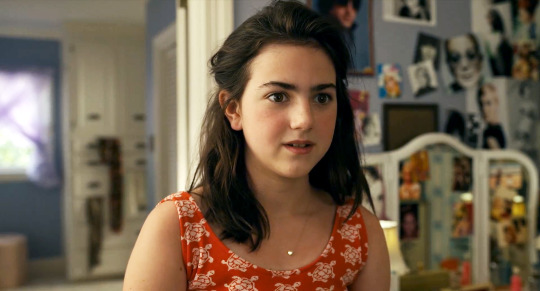
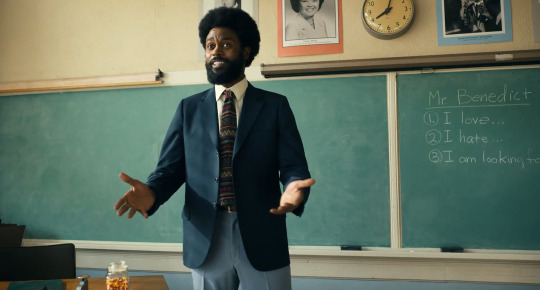
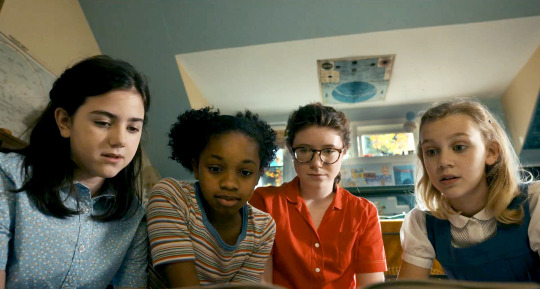
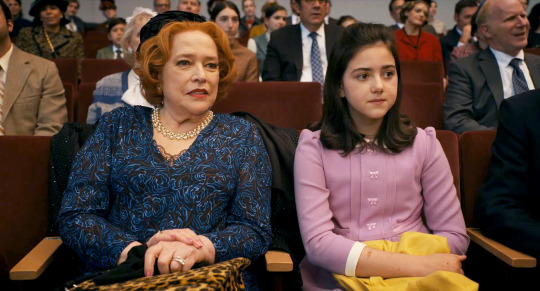
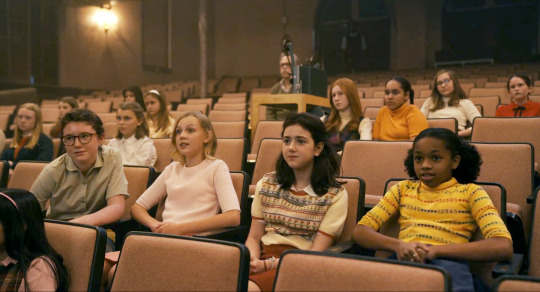

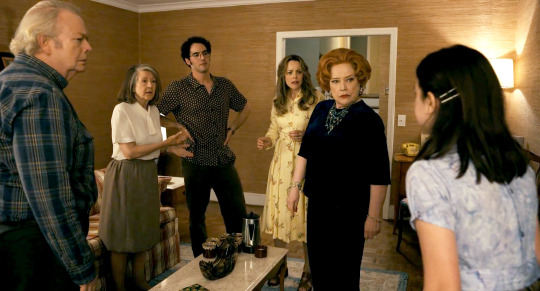
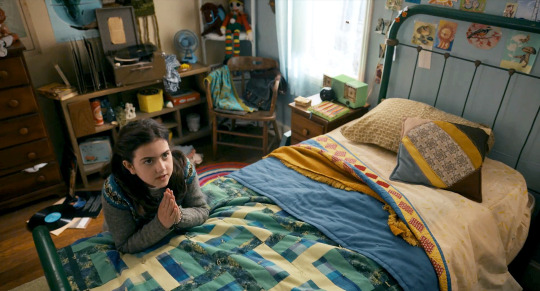
Are You There God? It's Me, Margaret. (2023) dir. Kelly Fremon Craig
#Are You There God? It's Me Margaret#Kelly Fremon Craig#Abby Ryder Fortson#Rachel McAdams#Benny Safdie#Kathy Bates#Elle Graham#Amari Alexis Price#Echo Kellum#Mia Dillon#Katherine Kupferer#Are You There God? It's Me Margaret.#Margaret Simon#watched today#Are You There God It's Me Margaret
74 notes
·
View notes
Photo
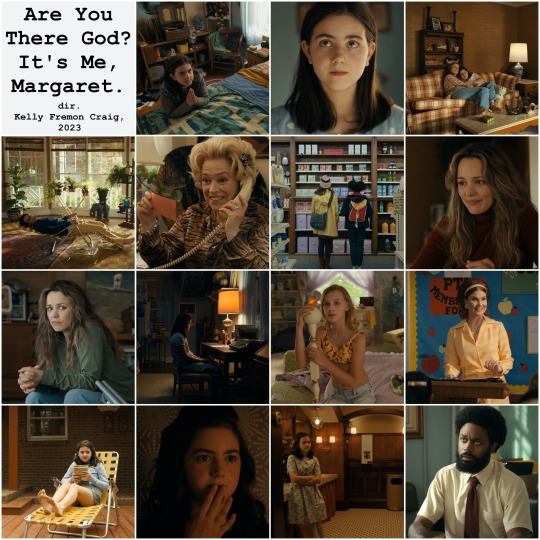
Are You There God? It’s Me, Margaret.
directed by Kelly Fremon Craig, 2023
#Are You There God? It's Me Margaret.#Are You There God? It's Me Margaret#Are You There God It's Me Margaret#Kelly Fremon Craig#movie mosaics#Abby Ryder Fortson#Rachel McAdams#Benny Safdie#Kathy Bates#Amari Alexis Price#Elle Graham#Kate MacCluggage#Echo Kellum
36 notes
·
View notes
Text









Are You There God? It's Me, Margaret. (2023)
#Are You There God? It's Me Margaret.#2023#Kelly Fremon Craig#Abby Ryder Fortson#Elle Graham#Rachel McAdams#Kathy Bates#Benny Safdie#Amari Alexis Price#Katherine Kupferer
3 notes
·
View notes
Photo
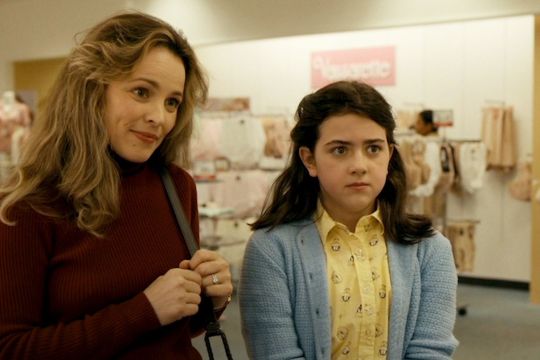
Are You There God? It’s Me, Margaret. (2023)
According to the American Library Association, there were over 1,200 challenges to remove library books or resource materials from an American school or public library in 2022. It was the highest number since the ALA started collecting data in 2003 and about half of these challenges result in a restriction or full removal of that text from circulation. Judy Blume’s Are You There God? It’s Me, Margaret. was one of the most frequently challenged books in the United States from its publication in 1970 through the 2000s due to its discussions of spirituality, girls’ sexuality, and menstruation. The recent book banning headlines in America tend to feature novels that have LGBTQ+ themes or have protagonists and/or prominent secondary characters who are non-white in tales surrounding racial relations. These contemporary debates might make the fury surrounding Are You There God? It’s Me, Margaret. seem quaint, in a culture far removed from the present. However, Blume’s book (and the debate surrounding it) remains relevant more than fifty years after its publication.
Perhaps it might surprise non-readers that Kelly Fremon Craig’s adaptation of Are You There God? It’s Me, Margaret. (henceforth, I will use simply Margaret in italics if referring to the book) is a gentle coming-of-age film in an environment sorely lacking such works right now. The lack of overly precocious children with a cynical wisecrack for every situation has few relations among its raunchy relatives of the last few decades; so too the absence of the meta humor and period-specific jokes of John Hughes’ (1984’s Sixteen Candles, 1985’s Ferris Bueller’s Day Off) movies. That cynical precociousness and audience-winking, period-specific humor could easily have appeared in Margaret if Craig, who also wrote the screenplay, made too many deviations from the source material. With Blume’s guiding hand as a producer, Craig’s as writer, and an enjoyable ensemble performance – especially Abby Ryder Fortson as Margaret – this is a worthy adaptation and entry into the American coming-of-age film canon.
Returning home to Brooklyn from a New England summer camp, eleven-year-old Margaret Simon (Fortson) is upset to hear that her parents Barbara (Rachel McAdams) and Herb (Benny Safdie) are soon to move to suburban New Jersey, leaving grandmother Sylvia (Kathy Bates) alone in New York. Shortly after arriving at the Simons’ new home, Margaret befriends eventual classmate Nancy Wheeler (Elle Graham), and her friends Janie Loomis (Amari Alexis Price) and Gretchen Potter (Katherine Kupferer). Through the school year, the girls will gossip about their classmates, talk about boys who catch their interest, bras, changes to their bodies, and more – the manner of their conversations, for middle school-aged characters, are unusual to see in films, let alone in literature. Meanwhile, their teacher, Mr. Benedict (Echo Kellum) assigns a yearlong research project to all. Noting Margaret’s answers on a getting-to-know-you assignment, he suggests looking into religion. That’s a touchy subject in the Simon household. Mother Barbara comes from a Christian family; father Herb from a Jewish family. Due to furious disagreements with Margaret’s grandparents, neither parent actively practices religion, nor have they imposed religion upon Margaret (she is free to choose when she “grows up”). Despite this, Margaret communicates to God on occasion about her hopes and concerns. Through the school year, Margaret will learn more about herself and religion, mostly on her terms.
Are You There God? It’s Me Margaret. also stars Isol Young as Laura Danker, a girl who is the target of nasty words because of her early puberty; Aidan Wotjak-Hissong as Margaret’s sort-of crush, Moose (I certainly hope that is a nickname); Landon S. Baxter as Nancy’s brother, Evan; Zackary Brooks as slick-haired handsome boy/shmuck Philip Leroy; and Kate MacCluggage as Mrs. Jan Wheeler (also PTA President). Mia Dillon and Gary Houston play Margaret’s maternal grandparents.
In terms of approach and tone, this is as finely-tuned a literary adaptation as there could be. Blume’s Margaret, slender as it is at under two hundred pages, is episodic by necessity and structure, often employing time skips of several days or a few weeks into a new chapter. Craig’s Margaret does so as well, but brief montages and editing from Nick Moore (1997’s The Full Monty, 2005’s Nanny McPhee) and Oona Flaherty ease the transitions – fully exemplifying one advantage motion pictures have over prose. The period detail in Margaret firmly grounds it in 1970. Together, the costume design by Ann Roth (1985’s Places in the Heart, 2021’s Ma Rainey’s Black Bottom) and production design by Steve Sakald (2005’s Thank You for Smoking, 2021’s Barb and Star Go to Vista Del Mar) transport the viewer to that period.
This adaptation contains a refreshing lack of major deletions from the original novel. All of the book’s important episodes, exchanges, ideas, and tender wisdom are in the film, and none of the secondary cast have been short-changed. If anything, the only notable alteration from Blume’s novel is the addition of a subplot for Rachel McAdams’ Barbara. Within this cast, McAdams is easily the most bankable movie star at present (with apologies the wonderful Kathy Bates, but her character is not as central to the narrative), which may have been the justification for this decision. Nevertheless, the subplot – which revolves around Barbara joining the school’s parent-teacher association (PTA) and volunteering for multiple committees – seems unnecessary, sidetracking from Margaret’s point of view (and Blume’s book is entirely written in Margaret’s voice). Thankfully, Barbara’s PTA experience does not have much screentime and always quickly reverts to Margaret. That the filmmakers did not fully trust Abby Ryder Fortson to carry an adult audience’s attention for the film’s entirety is disappointing, regardless of McAdams’ solid performance, as she needs to be the true star of this film.
Audiences may know Abby Ryder Fortson best as Cassie Lang from Ant-Man (2015) and its 2018 sequel. In her first film as the lead, Fortson is brilliant. She embodies Margaret’s guardedness and anxiety when first moving to New Jersey, especially in juxtaposition to the overly confident Nancy. Fortson also capture Margaret’s earnestness, as well as a few scenes of cruelty and thoughtlessness – crucially, Margaret’s worst moment feels plausible, and never seems as if the behavior is coming from some other character entirely. However, Craig’s screenplay, due to its inability to stay firmly in Margaret’s point of view, underserves her in the film’s final act when her maternal grandparents arrive. By no fault of Fortson’s, the film does not delve deeply enough into how Margaret feels about her maternal grandparents��� estrangement and attempts to reconcile with her parents. Fortson can only do so much in lending Margaret a mix of bafflement and uncertainty in these scenes in arguably the most emotionally charged scenes of the film. Here, the film is torn between Margaret’s feelings about her maternal grandparents and parents’ disagreements and how parental decisions can impact children for the rest of their lives. It achieves neither.
I have never been a teenage girl, nor was I raised in an environment where any of the Abrahamic religions were even tangentially part of my life (let alone being part of an interfaith family). Judy Blume probably did not have someone like me principally in her mind when she wrote her book. But in Margaret, I saw a glimmer of the past that I imagine many of you will see for yourselves, too. The incredible awkwardness of being a pre-teen is probably something you, the reader, would probably like to keep half-forgotten. Rare is the film that can summon those feelings: of wanting to grow up (and quickly!), only to realize that those milestones that we associate with maturity are perhaps not as earthshaking as we imagined them to be. True maturation is more elusive than what Margaret and her friends envision. Religion, the passage of time, and sexuality cannot confer it. And some grown-ups never quite discover that. Fortson, through her performance, and Craig’s screenplay deliver on all of this, even if Fortson herself might not realize it yet.
At eighty-five years of age, Judy Blume has had a modest cinematic renaissance this year. Her books, fixtures in American children’s and young adult literature, have curiously not often been adapted for television or film. But with this film and the documentary Judy Blume Forever premiering at the Sundance Film Festival earlier this year, that appears to be changing. On the television front, Netflix is currently in production on an adaptation of her young adult novel Forever… (another Blume work often finding itself on most banned/challenged book lists); also in the pipeline are TV adaptations of the Fudge series for children and the adult book Summer Sisters. For the New Jersey-born-and-raised Key West, Florida native, conversations about her legacy are underway. Despite her unassuming persona and the gentleness of both Margaret and its film adaptation, Blume has been a vocal critic of Florida’s recent Parental Rights in Education bill (also known as the “Don’t Say Gay” bill) and requirements to review books based on state guidelines mostly over gender identity, race, and sex. No surprise for an author who has been the target of book bans from almost the beginning of her career.
Are You There God? It’s Me, Margaret. arrives at a time when coming-of-age movies are, at least among the major and mini-major (such as Lionsgate, which distributed this film) American movie studios, no longer perceived as commercially viable for theatrical exhibition. Coming-of-age movies must be packaged within a superhero movie or tied to a franchise in order to find its way to American cinemas. The creative and financial heads of the superhero cinematic universes claim that their narratives can encompass genres/subgenres such as coming-of-age or political thrillers or historical epics, but their approach and distributional dominance precludes non-superhero affiliated films of such genres/subgenres from appearing in theaters in the first place. Their influence makes the existence of this film’s theatrical run – despite its apparent failure to find much of an audience beyond those who have read the book (non-readers of certain political stripes probably mistakenly thought this was a faith-based film from the evangelical Christian film industry or already knew about the book’s reputation and refused to see it) – a minor miracle.
Director Kelly Fremon Craig has worked on a coming-of-age film before surrounding a female protagonist in The Edge of Seventeen (2016). But Margaret – for its remarkable faith to the source material, engaging performances, and meticulous period detail – is an achievement surpassing that. Craig’s sensibilities as director and writer suit the film, and Fortson’s performance elevates it to the level of the most universal American coming-of-age movies.
My rating: 8/10
^ Based on my personal imdb rating. My interpretation of that ratings system can be found in the “Ratings system” page on my blog. Half-points are always rounded down.
For more of my reviews tagged “My Movie Odyssey”, check out the tag of the same name on my blog.
#Are You There God? It's Me Margaret#Kelly Fremon Craig#Judy Blume#Abby Ryder Fortson#Rachel McAdams#Kathy Bates#Benny Safdie#Elle Graham#Amari Alexis Price#Katharine Kupferer#Kate MacCluggage#Aidan Wojtak-Hissong#Landon S. Baxter#Echo Kellum#Zackary Brooks#Isol Young#Mia Dillon#Gary Houston#My Movie Odyssey
4 notes
·
View notes
Text
Are You There God? It's Me, Margaret.
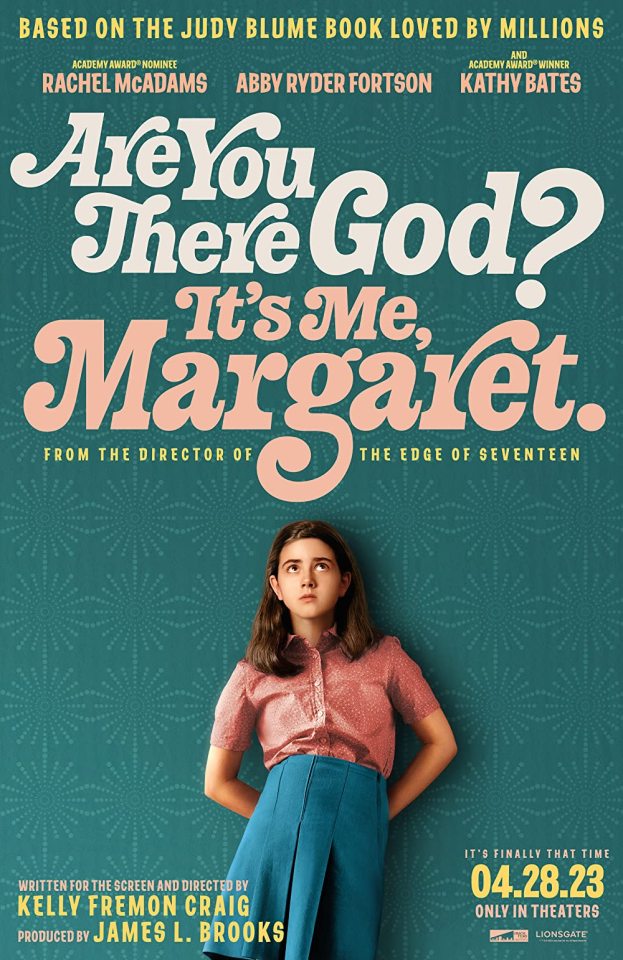
Movies watched in 2023
Are You There God? It's Me, Margaret. (2023, USA)
Director & Writer: Kelly Fremon Craig (based on the book by Judy Blume)
Mini-review:
Oh, I loved this! I must admit I never got around to reading the book, but after watching the movie (I've heard it's a very loyal adaptation), one can easily tell why it's widely regarded as a classic. It portrays puberty in a really frank and straightforward way, but also with a lovable dose of warmth. As for the cast, Abby Ryder Fortson is an absolute star and she will have a brilliant future, there's no doubt about that. And the rest of the kids are also fantastic! It honestly surprised me how good they all were. And of course, with names like Rachel McAdams and Kathy Bates in the cast, you already know the adult cast will deliver too. Their performances are as amazing as usual. Pitch perfect casting, for real. Last but not least, the period setting is beautifully recreated through the sets and the costumes. Anyway, Are You There God? It's Me, Margaret. is a lovely addition to the coming of age genre and will probably end up being considered a classic, just like the book.
#are you there god? it's me margaret#kelly fremon craig#judy blume#abby ryder fortson#rachel mcadams#kathy bates#benny safdie#elle graham#amari alexis price#katherine kupferer#kate maccluggage#aidan wojtak hissong#landon s. baxter#echo kellum#zackary brooks#isol young#mia dillon#gary houston#comedy#drama#puberty#coming of age#coming of age movies#movies watched in 2023
0 notes
Photo
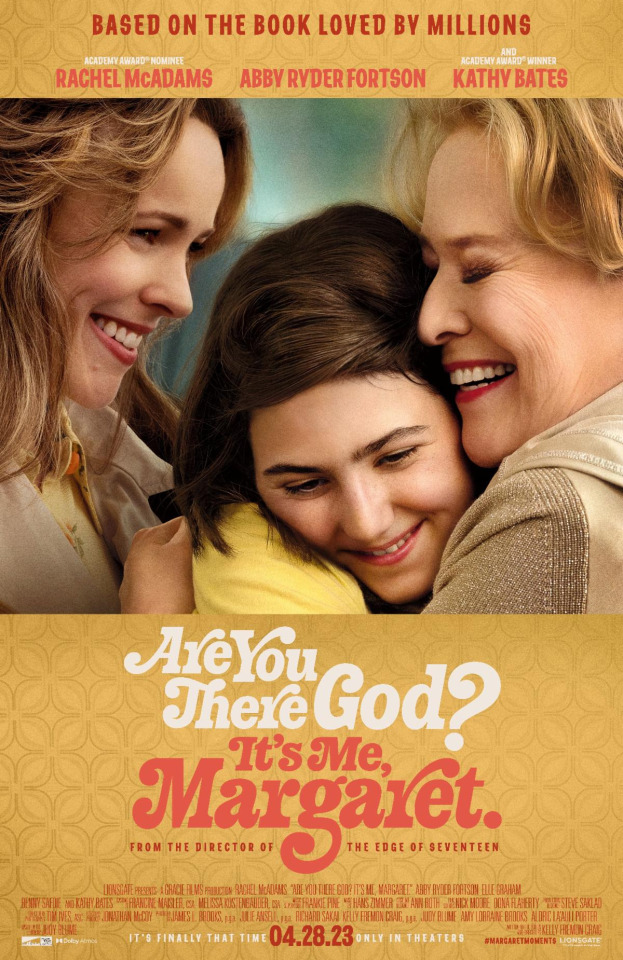
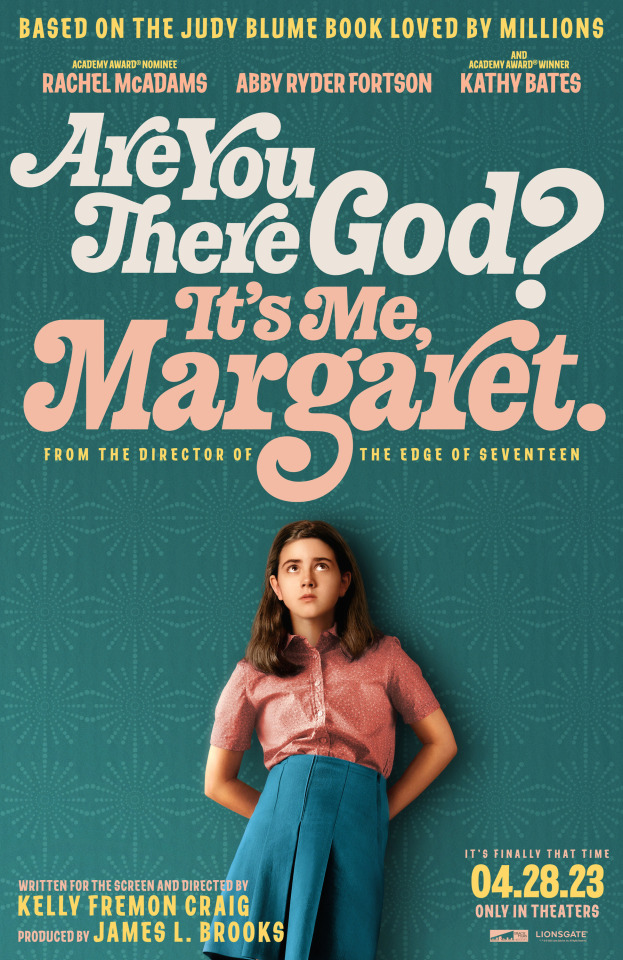

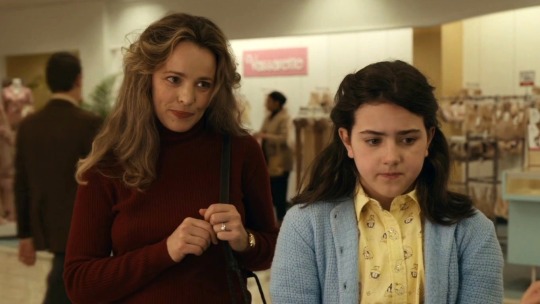


Are You There God? It’s Me, Margaret. (2023) Kelly Fremon Craig
June 10th 2023
#are you there god? it's me margaret.#2023#kelly fremon craig#abby ryder fortson#rachel mcadams#kathy bates#benny safdie#elle graham#amari alexis price#katherine mallen kupferer#kate maccluggage#echo kellum#isol young#aidan wojtak-hissong
0 notes
Link
Abby Ryder Fortson, Kathy Bates, Rachel Adams, Benny Safdie, Elle Graham, Katherine Mallen Kupferer, Amari Alexis Price, Kate MacCluggage, Landon S. Baxter, Aidan Wojtak Hissong, Echo Kellum, Simms May, Isol
#Abby Ryder Fortson#Kathy Bates#Rachel Adams#Benny Safdie#Elle Graham#Katherine Mallen Kupferer#Amari Alexis Price#Kate MacCluggage#Landon S. Baxter#Aidan Wojtak Hissong#Echo Kellum#Simms May#Isol Young#Zack Brooks#Jecobi Swain#Ariel DiDonato#Karen Macarah#Tanya J. McClellan#Samantha LeBrocq#Sloane Warren#Ethan McDowell#Wilbur Fitzgerald#Gary Houston#Mia Dillon
0 notes
Photo

Are You There God? It’s Me, Margaret. (dir. Kelly Fremon Craig).
This is such a sweet and earnest adaptation of Judy Blume’s formative 1970 novel about surviving female puberty with our titular sixth grader struggling to understand her changing body and oncoming womanhood. Starring Rachel McAdams and Abby Ryder Fortson and mother and daughter, the hilarious coming-of-age film set in ‘70s suburban New Jersey tells such a universal story (fifty years in the making) about first experiences, trying to fit in, and get along. It will clearly become essential viewing for young girls (much like the book) as a lovely entry into the young adult film cannon.
#are you there god? it's me margaret#judy blume#rachel mcadams#abby ryder fortson#lionsgate#kelly fremon craig#james l brooks#james l. brooks#gracie films#elle graham#benny safdie#kathy bates#movie#movies#movie review#film#film review#cinema#amari alexis price#katherine mallen kupferer#kate maccluggage#aidan wojtak-hissong#aidan wojtak hissong#landon s baxter#landon s. baxter#isol young
0 notes
Text
Are You There God? It's Me, Margaret. (2023) Review
When her family moves from the city to the suburbs from New York to New Jersey, Margaret who’s 11 years old must navigate new friends, feelings and the impending start of puberty. ⭐️⭐️⭐️⭐️ Continue reading Untitled
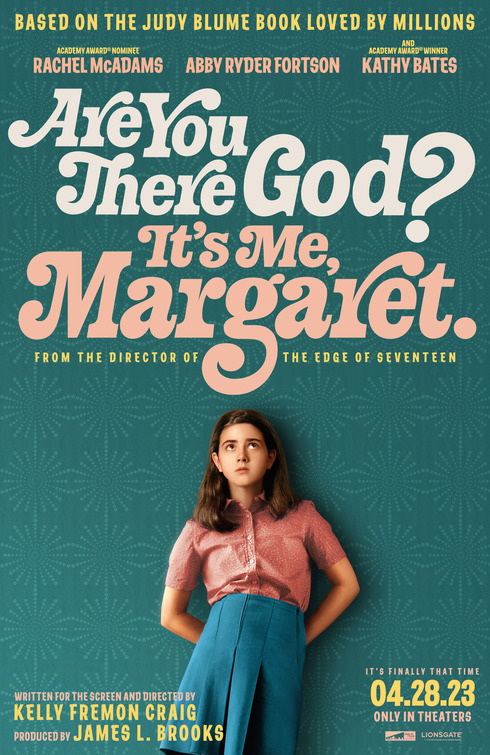
View On WordPress
#2023#Abby Ryder Fortson#Aidan Wojtak-Hissong#Amari Alexis Price#Are You There God? Its Me Margaret.#Based on a Book#Benny Safdie#Cinema#Comedy#Drama#Echo Kellum#Elle Graham#Family#Isol Young#Jecobi Swain#Judy Blume#Kate MacCluggage#Katherine Mallen Kupferer#Kathy Bates#Kelly Fremon Craig#Landon S. Baxter#Mackenzie Joy Potter#Olivia Williams#Rachel McAdams#Simms May#Zack Brooks
0 notes
Text
Are You There God? It's Me, Margaret. (2023, dir. Kelly Fremon Craig) - review by Rookie-Critic
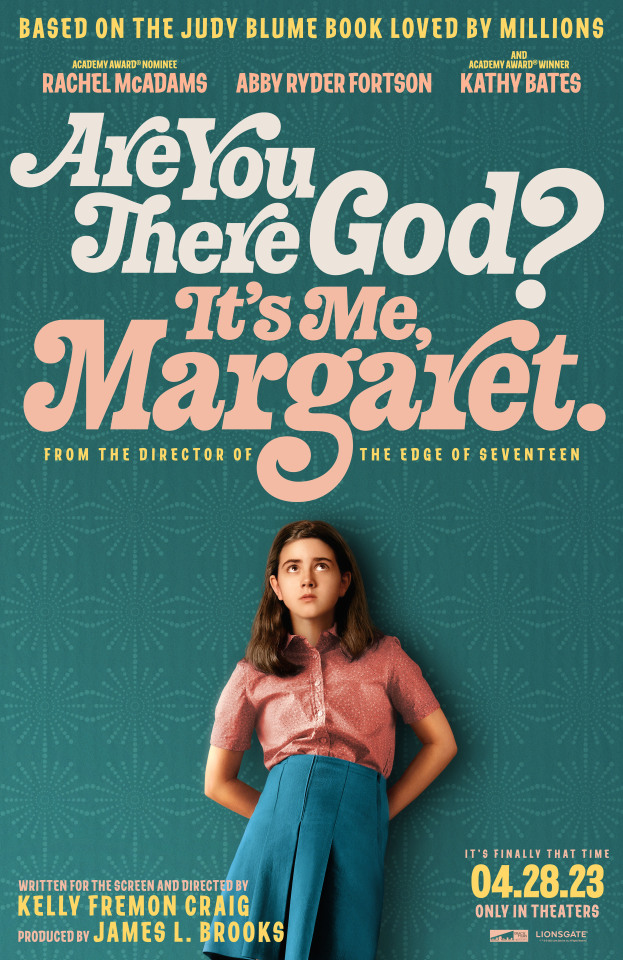
This movie really charmed me. I was, of course, aware of the book's existence and of Judy Blume in general (I had read the Fudge series of books in elementary school), but I'd never read it. So I had no idea what I was going into when I went and saw this a couple days ago. It turned out to be a lovely story that tackles female puberty, female identity, and complicated family dynamics in terms of religion in a very candid and unashamed way. It's a coming-of-age film that actually feels like our central character does just that; a year in the life film where we feel like our protagonist has gone on a journey and come out the other side of it changed. Not in some grand, high-stakes, movie way, but in a very human way. In a way that only a year of life experiences at that age could change you.
In the film, Margaret is a girl on the verge of entering the sixth grade, and is being forced to move from the bustling streets of New York City to the suburbs of New Jersey. From there the general things happen: she makes new friends, learns things about life and womanhood she was previously unaware of, has big talks with her mom (played by the always wonderful Rachel McAdams) about grandparents she's never met, and just exists as a pre-teen girl in 1970s America. Nothing particularly mind-blowing happens in the film's runtime, but the beauty of this story comes from all of the subtle changes and things that happen. The conversations with her new friends, her first crush, her curiosity about Judaism and Christianity as a result of being raised in non-religious household, and the culmination of all of these things as they shape the person you know Margaret will turn into as an adult as a result of these experiences.
I think what impressed me just as much as the main storyline with Margaret is how well embodied her mom is as a character. McAdams' Barbara Simon feels almost as important as Margaret and the story tries hard to show how the trauma of her parents affected her, and how much her and her husband Herb (a big, sweet doofus played by Benny Safdie) are trying to keep the stressors and potential trauma of extreme religion off of their daughter. It's wild to think of parents that are that supportive and progressive existing in that era of American history, but it's also a very refreshing to see an example of positive and affirmative parenting on screen. The deft hand with which directory Kelly Fremon Craig (whose previous film, The Edge of Seventeen, I also loved) handles religion in this is impressive. The condemnation of extreme devout-ism while not shunning the concept of personal faith away entirely is a bit of thin tightrope walk, but Craig and the entire cast walk it beautifully. Allowing Margaret to talk her perception of God on her own terms and the exploration of how that word means something different to everyone (if it means anything to them at all), and how all of those different meanings are ok, is a wonderful message to send. This is just one of those movies that, try as I might, I can't find a single thing to complain about. It's lovely, it's life-affirming, and it's a wonderful film for everyone, man, woman, young, old, and everything on the spectrum in-between, to enjoy. The most effortlessly great film so far this year.
10/10
Only in theaters. Also, the soundtrack is front-to-back bangers, and the costume design department on this film deserves a ton of praise, because all of the outfits in this were cute as hell.
#Are You There God? It's Me Margaret.#Kelly Fremon Craig#Judy Blume#Abby Ryder Fortson#Rachel McAdams#Kathy Bates#Benny Safdie#Elle Graham#Echo Kellum#Isol Young#Amari Alexis Price#Katherine Kupferer#Aidan Wojtak-Hissong#Kate MacCluggage#Zack Brooks#Mia Dillon#Gary Houston#Simms May#Landon Baxter#film review#movie review#2023 films
0 notes
Text
"Are You There God? It's Me, Margaret"
This wholesome, perfectly cast film does the source material justice, creating a timeless coming-of-age-story that brings Judy Blume's classic book to life.
“Are You There God? It’s Me, Margaret” is one of the first books I remember reading where I felt like the author really understood what it was like to be me. Judy Blume’s beloved book has been considered a rite of passage for many young girls, and the pressure of adapting the work for the screen had to be enormous for writer-director Kelly Fremon Craig. Thankfully, the film does the source…

View On WordPress
#Abby Ryder Fortson#Aidan Wojtak-Hissong#Amari Alexis Price#Benny Safdie#Elle Graham#Isol Young#Katherine Mallen Kupferer#Kathy Bates#Kelly Fremon Craig#Rachel McAdams
0 notes
Text
ARE YOU THERE GOD? IT’S ME, MARGARET:
Moving to new home
Margaret examines her faith
Longs for puberty
youtube
#are you there god? it's me margaret#random richards#poem#haiku#poetry#haiku poem#poets on tumblr#haiku poetry#haiku form#poetic#judy blume#abby ryder fortson#rachel mcadams#benny safdie#kathy bates#elle graham#amari Alexis price#Katherine Mallen Kupferer#Kate maccluggage#Aidan wojtak-hissong#echo kellum#olivia williams#kelly fremon craig#Youtube
0 notes
Text
'Are You There God? It's Me, Margaret' Review: Our Prayers Are Answered
'Are You There God? It's Me, Margaret' Review: Our Prayers Are Answered
They’re all here, God! (CREDIT: Dana Hawley/Lionsgate) Starring: Abby Ryder Fortson, Rachel McAdams, Kathy Bates, Benny Safdie, Elle Graham, Echo Kellum, Amari Alexis Price, Katherine Kupferer, Isol Young Director: Kelly Fremon Craig Running Time: 106 Minutes Rating: PG-13 for “Thematic Material Involving Sexual Education” (So You Can Basically Replace the “13” in “PG-13” with Whatever Age Sex Ed…
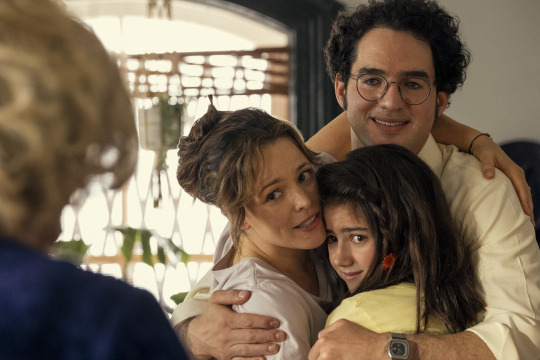
View On WordPress
#Abby Ryder Fortson#Amari Alexis Price#Are You There God? It&039;s Me Margaret#Benny Safdie#Echo Kellum#Elle Graham#Isol Young#Katherine Kupferer#Kathy Bates#Kelly Fremon Craig#Rachel McAdams
0 notes
Text
Losing Her Religion - Film Review: Are You There God? It's Me, Margaret ★★★★1/2

Even if he never writes or directs anything again, James L. Brooks has already amassed an iconic legacy of masterful television and film projects such as Terms Of Endearment, Broadcast News, and the Mary Tyler Moore Show, not to mention putting his stamp on producing The Simpsons, which has been running for 34 seasons and counting. He has been particularly adept with strong female characters, providing career-defining roles for such women as Shirley MacLaine, Debra Winger, Holly Hunter, Helen Hunt, Julie Kavner, and the aforementioned, late great Mary Tyler Moore.
It makes sense then, that for someone who has made such humanistic projects as he has, that he would want to pass the torch to a worthy heir, and Brooks has clearly found such a talent in writer/director Kelly Fremon Craig. Brooks seems to have tested the waters by producing her debut feature, The Edge Of Seventeen, a refreshingly assured coming-of-age comedy from 2016 starring Hailee Steinfeld. Clearly pleased with the results, they have collaborated again, getting legendary author Judy Blume’s blessing on adapting her treasured 1970 novel, Are You There God? It’s Me, Margaret to the screen. Well, whatever Brooks was praying to or for, he was heard, because Fremon Craig has not only done Blume proud, but she has also brought that Brooks level of quirky, neurotic, unpredictable, zig-zag rhythm to her lovely filmmaking but with a voice of her own. She honors Brooks’ commitment to character specificity without imitating him, and this film is a joy to behold.
It’s the end of summer 1970, and 11-year-old Margaret Simon (Abby Ryder Fortson) has just returned from camp to her New York City life where her parents Barbara (Rachel McAdams) and Herb (Benny Safdie) break the news to their daughter that they’re immediately moving away from Grandma Sylvia (Kathy Bates) to the suburbs of New Jersey. Horrified by the idea of being uprooted, Margaret begins her conversation with God, an unlikely undertaking considering she has eschewed religion up to this point in her life. With a Jewish father and a Christian mother, she has been given the choice to not make any decisions regarding faith until she enters into adulthood. With so many questions formulating in her mind and a classroom assignment on religion narrowing that timeline, Margaret just might not be able to wait that long. It seems she has no time to waste when it comes to learning about sexuality, menstruation, her developing body, friendship, bullying, lies, and that big higher power.
But back on the ground in Jersey, it doesn’t take long for Margaret to meet her neighbor Nancy Wheeler (a perfectly cast Elle Graham), a future Mean Girls-esque Regina George in the making if there ever was one. Nancy accepts her into her secret club of girls who include Gretchen (Katherine Malden Kupferer) and the adorable Janie (Amari Alexis Price). Their adventures lead to some of the most famous moments from the novel, including the purchasing of sanitary napkins and the classic chant, “We must, we must, we must increase our bust!” Some of their moments involve sweet times with boys, but others give Margaret pause, such as when they seem to ostracize a fellow student or spread unnecessary lies.
Margaret also witnesses complex issues regarding religion within her parents’ marriage and how her mother has stifled her own creative ambitions with their new life away from the city. Margaret’s only respite from everything seems to be with her beloved Grandma, who treats her to Broadway shows and slumber parties. I mean, who wouldn’t want to curl up with Kathy Bates for a girls night? Bates, as always, is a scene-stealing force of nature here. But part of growing up means Margaret learning that even Grandmas don’t just want to spend all their time with children. Coming of age is hard, and Margaret seems to hit a wall everywhere she turns.
With a story like this, packed as it is with so much novelistic incident, it either sinks or swims by the compelling nature of its protagonist. Thankfully, Freeman Craig has struck gold with Fortson, an assured, focused, confident actor who blisteringly tears through this film from beginning to end. She’s right up there with Aurora Greenway, Emma Greenway, and Jane Craig in finding vulnerability in the assertive, kindness in what is often considered blunt. It’s a fantastic, attention-deserving performance. When she experiences something life-changing late in the film, her reaction brought me to tears. There’s not a whiff of “cutesy child actor” about her performance. It’s a fully realized character and made me hopeful, just like the novel, that young girls will aspire to be just as complicated, layered, and as perfectly imperfect as Margaret.
Same goes for McAdams, who has kindness gushing out of her pores here, yet has to go on her own journey of self-realization to understand that sometimes it’s ok to not make everybody happy. She also happens to be one of the best listeners in the business, her eyes always seem so alive in her scenes, filled with empathy, anxiety, and everything in between. Safdie, best known as one half of the brothers who directed Uncut Gems, acquits himself well as the father who resents his wife’s parents for judging him. I also enjoyed Kate MacCluggage as Nancy’s very uptight mother who seems to have never let the Eisenhower Era go.
It’s important to note that the novel was squarely aimed at young adults, as is the film. While some of the themes are mature, it keeps things fairly light in tone, never getting terribly deep or harsh. Fremon Craig clearly communicated this to her crew as well. I especially appreciated that Tim Ives’ cinematography didn’t lean into the trope of a sun-dappled 1970’s look but instead opted for a more simple naturalism. Same goes for Steve Saklad’s detailed but unfussy production design. Ann Roth’s costume design also contributed greatly to the look of this film, from McAdams’ hip hugger jeans to those clearly painful sock-free loafers Fortson wears. This unassuming approach feels intentional by design, and as such, the film is an adorable joy from beginning to end. I can’t wait to see what Fremon Craig does next.
For over 50 years, the novel has inspired generations of young people to be better people, to be more aware of their growing bodies, to be kind to others, and to celebrate our differences. Judy Blume had turned down many offers over the years to adapt this book, but clearly she, like James L. Brooks, saw something in Fremon Craig that made her say yes. I’m so glad she did. Hopefully, with this gem of a film, Blume’s wonderfully messy message can reach out even further and inspire generations of young girls to not want to be perfect little Barbies but to be brash, bold, funny, sweet, Margarets instead.
1 note
·
View note